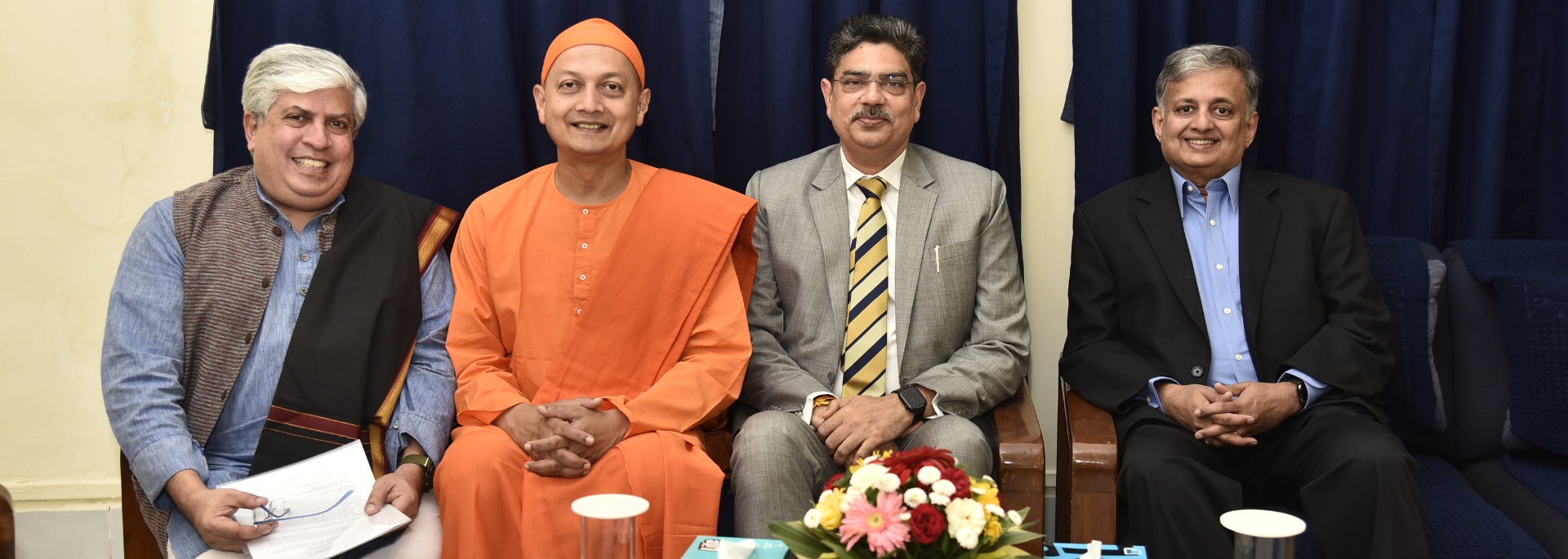|
1
|
Business Ethics and Communication
|
Business Ethics
|
BC-EX104
|
Dr. Nisigandha Bhuyan
|
-
Facilitate building the cognitive, behavioral, and managerial competence in ethics.
-
Introduce students to the realm of ethics/morality and its importance to society/civilization in general and business in particular.
-
Build awareness among students and sensitize them to the issues of ethical importance specific to their domain of education/enquiry/practice.
-
Develop understanding of the role of manager/leader as an ethical individual and as a professional and thereby sharpen their ethical decision-making skills.
-
Help students appreciate the necessity of ethical practices for sustainable growth and profitability and appreciate the role of ethics in the wider context of globalization and technological advancements.
|
|
2
|
Economics and Operations Management
|
Managerial Problem Solving
|
OM-EX104
|
Dr. Conan Mukherjee and Dr. Vishal Bansal
|
-
Understand the basics of decision-making under uncertainty
-
Learn various game theoretic modeling frameworks
-
Study various strategic decision-making models using Game Theory
-
Comprehend the usefulness of simulation and queuing modeling
|
|
3
|
Strategic Management
|
Strategy Execution
|
SM-EX102
|
Dr. Ramya T. Venkateswaran
|
-
Introduce students to the principles of effective strategy implementation and address key concepts such as the triad of strategy-people-operations; structures such as incentives, reviews, organizational structure, the role of leadership and organizational culture, within the context of strategic change, execution failure, and other aspects of strategy implementation.
- Equip students with the essential tools and frameworks popular in strategy execution.
- Help students apply these fundamental conceptual tools and in-class simulations to gain a first-hand experience of how their strategic decisions impact firm performance.
- Introduce students to hands-on sessions in using and critiquing the tools of strategy execution.
|
|
4
|
Strategic Management
|
International Business Management
|
SM-EX103
|
Dr. Anirvan Pant
|
-
Develop a conceptual and contextual understanding of the opportunities and challenges of international business management.
-
Explore the role of competition, advantage, organization, leadership and institutions in cross-border and comparative contexts.
- Examine the issues of international business management through the frames of decision makers as diverse as those making choices for multinational enterprises, industry associations, and as national governments.
- Participate in the ever-evolving debate on globalization with an informed and balanced
managerial point of view.
|
|
5
|
Human Resource Management
|
Human Resource Management
|
HR-EX101
|
Dr. Amit Dhiman
|
-
Gain understanding and appreciation of key Human Resource Management issues in the sub streams of hiring, development, and rewarding related to human resources in an organizational context.
-
Create ability to relate previous work experiences with the concepts and issues discussed in the class.
-
Develop critical thinking and problem solving related to human resource challenges faced inside the organizations.
|













